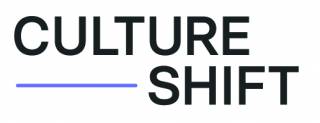Calling Time on Sexual Misconduct: best-practice prevention in higher education • 17-18th June, 2020

About the conference
UCL proudly hosted the Calling Time on Sexual Misconduct Conference to share global best-practice on sexual misconduct prevention in higher education. We were grateful for the support of Culture Shift as our primary sponsor.
Sexual misconduct and harassment have been long-standing issues for higher education institutions. However, there has been increased focus and momentum building across countries to effectively address and prevent such issues for students and staff.
The purpose of this conference was to facilitate a global conversation on best-practice and key learnings in implementing policies and projects within higher education settings. This is a global issue that requires a global response. While universities are not unique in the prevalence of these issues, they are uniquely-placed to ensure an effective and holistic response.
The conference was attended by 350 people from the following countries; Australia, Brazil, Canada, China, Czech Republic, Estonia, Finland, France, Germany, Hong Kong, India, Iran, Iraq, Ireland, Italy, Jersey, Malaysia, Mexico, Netherlands, New Zealand, Panama, Philippines, Saint Lucia, Singapore, South Africa, Spain, St Helens, UAE, UK and USA.
A selection of the presentations from the conference are available to view below.
Our primary sponsor was Cultureshift.
- Programme
The conference will focus on the following themes:
- Moving beyond policies: examining primary prevention interventions and learnings and building a culture of belief
- Intersectional experiences: understanding the overlapping of systems of oppression and the impact on members of a university community to identify necessary solutions.
- Not a moment, it’s a movement: Creating sustainable change and building networks of allies and bystanders.
Participants may choose to attend one stream across the conference, or select individual workshops and sessions they wish to attend. All materials and presentations will be packaged within each steam to allow for deeper discussions and enhanced practical solutions.
- Speakers
Conference Speakers
- Sponsors
UCL is pleased to work with a number of key sponsors who have helped make this event possible.
Would you like to become a Sponsor or Exhibitor at the upcoming ‘Times Up in Higher Education’ Conference?
Please contact callingtime-conference@ucl.ac.uk for more information.- About UCL
UCL
Founded in 1826 in the heart of London, UCL is London's leading multidisciplinary university, with more than 13,000 staff and 42,000 students from 150 different countries. We are a diverse community with the freedom and courage to challenge, to question and to think differently. Through a progressive approach to teaching and research, our world leading academics, curious students and outstanding staff continually pursue excellence, break boundaries and make an impact on real world problems. For further information on UCL, please visit About UCL.
About UCL’s work to address and prevent Sexual Misconduct and harassment
In June 2017, UCL held an internal conference chaired by Provost and President Michael Arthur called ‘Full Stop’. The conference was attended by 100 students, academics and professional staff to explore the prevalence and impact of sexual harassment in higher education. Following this conference, Provost Michael Arthur established the Preventing Sexual Misconduct Strategy Group, appointing then Director of the Institute of Education, Professor Becky Francis as chair, and Dean of Engineering Professor Nigel Titchener-Hooker as deputy-chair. The strategy group consisted of a cross-section of student and staff facing roles, academics, support and professional staff. The strategy group were tasked with reviewing the existing policy, practice, training and support that UCL had in place and providing recommendations and a strategy to the Senior Management Team in 2018. To support this work, UCL appointed a full-time permanent Preventing Sexual Misconduct Manager (now Behaviour and Culture Change Manager) to ensure this work was strategically embedded into the core business of the university.
The six-month insights and progress of the strategy group can be found here.
For further details of the terms of reference of the strategy group and membership, please visit the website.
 Close
Close


